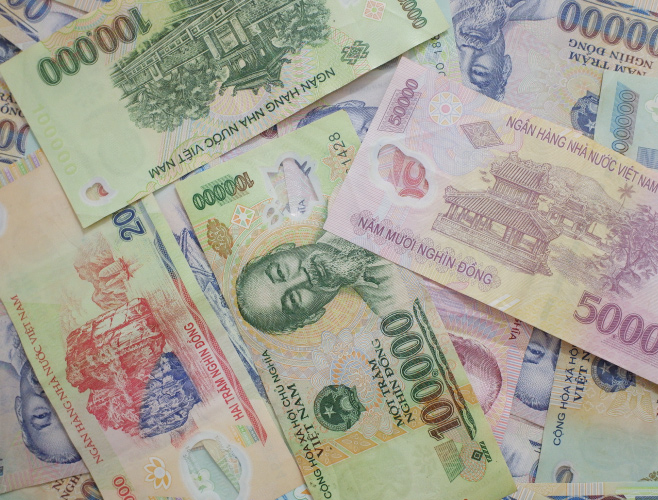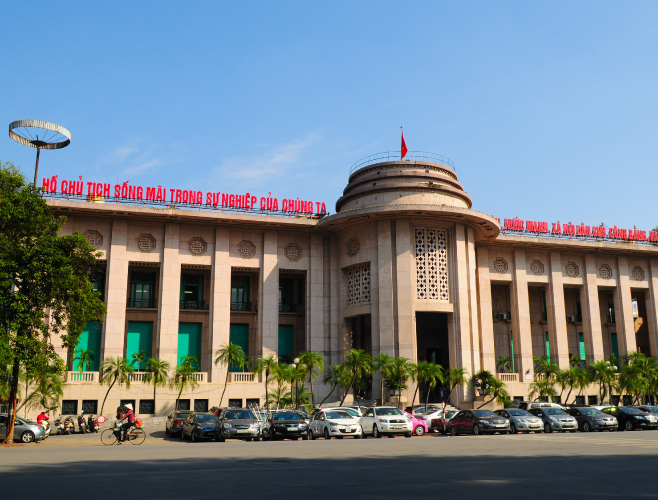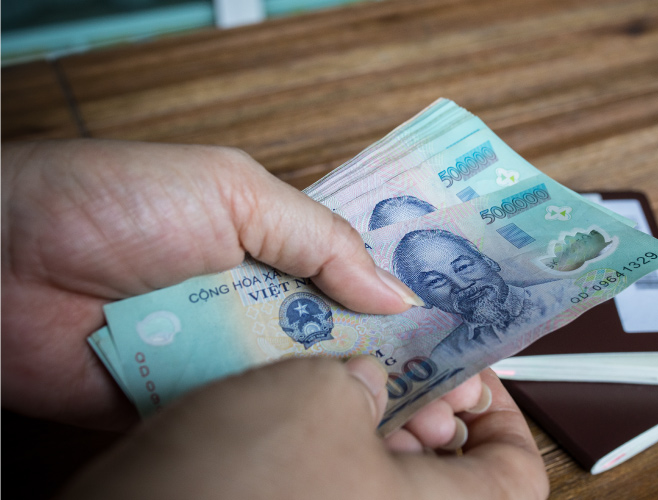Currency Of Vietnam - The Rich History And Economic Significance
As one of the most vibrant and rapidly developing economies in Southeast Asia, Vietnam boasts a fascinating history that is intricately intertwined with its currency. The Vietnamese dong (VND) serves as the nation's official currency, acting as a symbol of economic growth and national pride. In this article, we will delve into the rich history of the currency of Vietnam, exploring its evolution, unique features, and the role it plays in shaping the country's economic landscape.
Vietnam currency historical context: A journey through time
The history of the Vietnamese currency can be traced back to ancient times when bartering was the primary method of exchange. However, the need for a standardized medium of exchange became evident with the rise of trade and commerce.
The first official currency of Vietnam, the Vietnamese dong, was introduced in the 19th century during the reign of Emperor Minh Mang under the Nguyen dynasty. Its name was derived from the Chinese word "tong," which translates to "copper" and reflects its initial form.
During its early years, the dong was issued in various denominations, including coins made of copper, silver, and gold, as well as banknotes. The currency's evolution was punctuated by periods of conflict, colonial rule, and economic upheavals, which significantly influenced its development.

Currency of Vietnam - the Vietnam Dong
Colonial Influences: The French Indochinese Piastre
Vietnam's fate took a significant turn when it fell under French colonial rule in the mid-19th century. The French Indochinese piastre, a currency introduced by the colonial authorities, became the official currency of Vietnam alongside other countries in the Indochinese Union, including Laos and Cambodia.
The piastre was pegged to the French franc, solidifying the country's economic ties with its colonial ruler. However, this pegging had both positive and negative effects on the Vietnamese economy. On the one hand, it provided stability and facilitated trade within the colonial empire. On the other hand, it limited Vietnam's monetary policy autonomy, making it susceptible to fluctuations in the French financial system.
Independence and reforms: Birth of the Modern Dong
After a prolonged struggle for independence, Vietnam successfully liberated itself from French colonial rule in 1954, marking the beginning of a new era. The country was divided into two regions, the North and the South, each with its own currency system. The North used the dong, while the South issued the South Vietnamese dong (SVD) as its currency.
In 1975, the reunification of Vietnam took place, and the two regions were merged into one unified nation. This event also led to the unification of the two currency systems, with the northern dong becoming the official currency for the entire country. The new currency was called the "Libération" dong (VND), signaling the nation's freedom and independence.
The Modern Currency of Vietnam - Features and Denominations
What currency does Vietnam use?
The Vietnamese dong, denoted by the symbol "VND", is the official currency of Vietnam and is managed and issued by the State Bank of Vietnam, the country's central bank. The bank is responsible for regulating the money supply, ensuring price stability, and fostering sustainable economic growth.

The State Bank of Vietnam is regulating the money throughout the country
Currency of Vietnam - About Denominations
The VND is subdivided into smaller units known as hào and xu, but they are rarely used in everyday transactions due to their low value. Instead, the primary denominations used are banknotes, which come in various values, including 1,000 VND, 2,000 VND, 5,000 VND, 10,000 VND, 20,000 VND, 50,000 VND, 100,000 VND, 200,000 VND and 500,000 VND. Coins are also in circulation, though less commonly used, with denominations ranging from 200 VND to 5,000 VND.
- Vietnam currency to USD: 1.00 USD = 25,965 Vietnam Dong (May 12, 2025, 08:21 UTC)
Note for travelers: Make sure to check before making a payment as currency of Vietnam both the 20,000 VND bill and the 500,000 VND bill share the same blue color tone.
Tips for exchanging currency of Vietnam
Exchanging currency in Vietnam can be very easy, but there are some essential tips to keep in mind to ensure you get the best rates and have a smooth experience. Here are some valuable tips for exchanging the currency of Vietnam:
-
Compare Rates: Different exchange counters may offer slightly different rates and fees. Before exchanging your money, compare the rates at various banks or exchange offices to find the most favorable deal.
-
Always pay in Vietnam Dong: Being offered to pay in your own currency at an ATM is a sneaky trick and causes many travelers to pay more than they need to. Always choose to pay in the local currency - in this case, dong - to cut your costs and get the best rates available.
-
Avoid Exchanging at Hotels: While hotels may offer currency exchange services for convenience, their rates are often less favorable compared to banks or authorized exchange offices. It's better to exchange your money at reputable banks or exchange counters to get better rates.

Exchange money in Vietnam
Conclusion: Currency of Vietnam - the Vietnam Dong
Vietnam has become an increasingly popular tourist destination in recent decades, attracting millions of visitors from around the world each year. Tourism has emerged as a crucial driver of economic growth, contributing significantly to the country's GDP and employment.
The affordable cost of living and travel expenses in Vietnam has been a key draw for international visitors. With the relatively low value of the dong compared to major currencies, tourists can experience a wide range of attractions, delicious cuisine, and diverse cultural experiences at affordable prices.
As Vietnam continues to grow and evolve, the currency of Vietnam - the Vietnam Dong will remain a symbol of national pride and unity, and its value will be instrumental in driving the nation's future economic prosperity. With prudent economic policies and a keen eye on global developments, Vietnam is poised to leverage the strength of its currency to become a formidable player in the global economy.
If you want to travel to Vietnam and experience all the top destinations that have been enrolled in UNESCO World Heritage sites, let’s get a travel ticket to Vietnam and embark on your journey right away! Check what you need to prepare all the necessary documents to qualify for an e-visa. Now get ready for the next trip to Vietnam!
Related Articles
- Moc Chau: Highland paradise of tea hills & cultural adventures
- Team building and CSR activities in Vietnam: Visa services
- Honeymoon in Vietnam: Best romantic packages for couples
- Amanoi Resort in Vietnam: Luxury retreat in Vinh Hy Bay
- Six Senses resorts in Vietnam: Ninh Van Bay and Con Dao
- Con Dao Island: A historical and natural paradise in Vietnam
HOW CAN WE HELP?
APPLY WITH CONFIDENCE










